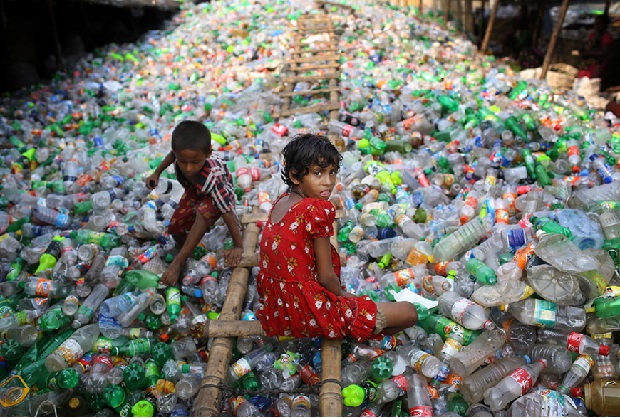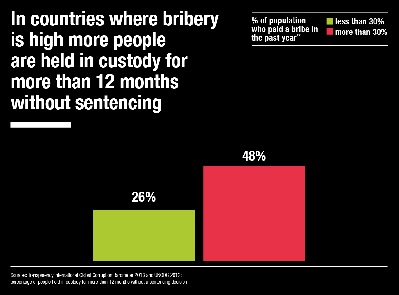This week the United Nations will agree on 17 sustainable development goals. Goal 16 makes the case that fighting corruption is at the heart of delivering a better world. We have argued this case for many years and are beginning to amass the data to prove this.
That’s why it is so important that in implementing the next set of development goals we include strong indicators to measure bribery and corruption. Poverty reduction cannot happen without tackling corruption and establishing good governance (see here, here and here).
Sustainable Development Goal 16
Promote peaceful and inclusive societies for sustainable development, provide access to justice for all and build effective, accountable and inclusive institutions at all levels
Corruption impedes good governance. This leads to poor health outcomes: mothers dying during childbirth and children struggling to live past the age of five; lack of clean water and toilets.
Poor countries tend to score badly on corruption indices, including the Transparency International Corruption Perceptions Index, and it is these countries that are most reliant on overseas aid. Our analysis shows that higher levels of bribery are significantly and positively correlated with levels of foreign aid. This suggests that corruption removes any positive incremental effect that foreign aid has on poverty reduction.
In too many cases corrupt politicians in poor countries are diverting government revenues for private gain while foreign aid pours in to maintain basic government services.
Good governance through more voice and accountability or political stability helps in reducing the dependence on aid because it helps build strong sustainable institutions.
The proposed indicator to monitor the progress of Goal 16 is to measure the prevalence of bribery in a country. This can also be used for monitoring access to basic services, overseas development assistance, rule of law, or protection of fundamental freedoms because all these things are interlinked.
We tested these links. For example, we found that in countries with higher bribery rates people are more likely to be detained in prisons without any charges. Any positive effects of good governance on protecting fundamental freedoms is almost entirely negated by corruption.
While this shows corruption’s undermining effects, we need more data to establish clear links between corruption and other indicators such as illicit financial flows. But even when data are available, there is no standardised approach to data collection and survey questions, which makes cross country comparability almost impossible. We need better coordination of how this data is collected and analysed.
Keeping people honest
The effectiveness of the new UN goals will lie in the quality of how they are implemented by the member states. And in order to know if the Sustainable Development Goals are implemented, we need to measure them and assess progress.
This means the UN must agree to:
• Retain the target on corruption and bribery
• Consider using data collected by well-respected third party data generators, such as the regional barometer networks that already collect comparable data on corruption and bribery
• Identify data gaps and devise methodologies to fill these gaps
• Ensure standardised data collection across countries to allow for global comparability in achieving the various targets
The ability of the new UN goals to make life better for more people and eradicate poverty in the next 15 years will depend on some key decisions we make now regarding what to measure and how to measure it.

















 Connect with us on Facebook
Connect with us on Facebook Follow us on Twitter
Follow us on Twitter